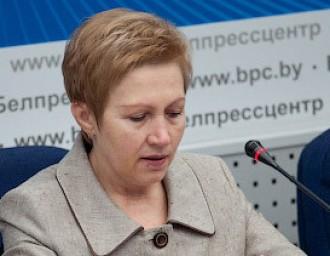Nadzeia Ermakova: We have no right to issue more money and we will not do it

The National Bank of Belarus (NBB) won’t increase issuance of currency in order to meet the target of the GDP growth.
This was announced to the BelaPAN by the head of the NBB Nadzeia Ermakova in Minsk on November, 20. The target imposed to the government by Aliaksandr Lukashenka this year makes up the GDP growth rate increase of 5 to 5,5 percent, while National Statistics Committee reports about the decrease from 5,3 percent in 2011 to 2,2 percent in the first 10 months of 2012.
While speaking to Prime Minister Mihail Miasnikovich, Economy Minister Mikalai Snapkou and Finance Minister Andrei Harkavec, Aliaksandr Lukashenka ordered to meet the GDP growth target. In response, Miasnikovich assured him that all of his directives would certainly be fulfilled.
When asked last week about this year’s slowdown in Belarus’ GDP growth, Miasnikovich told reporters that economic growth should be real. “It is not the quantity that matters, but the quality,” he noted.
“We should have real economic growth,” Miasnikovich said. “We believe that the Belarusan economy ensures recovery and the main goal is still to have steady real economic growth.”
It is currently difficult to measure GDP growth, he noted. “Last year we had a very high inflation rate and it remains high,” he said. “We expect a rate of about 20 per cent for this year. The high inflation certainly affects the accuracy of GDP and GDP growth estimates. But if we look at components, we’ll see that we do have economic growth: the population’s purchasing capacity increases; a steady performance is shown by the industrial and agricultural sectors, which have year-on-year growth rates of 6.5 to seven and six per cent, respectively. This is real economic growth. Yes, we have some decline in construction, but it is not because we should not build something but because we should build within the finances and not inflate bubbles.”
-
03.01
-
07.10
-
22.09
-
17.08
-
12.08
-
30.09










































